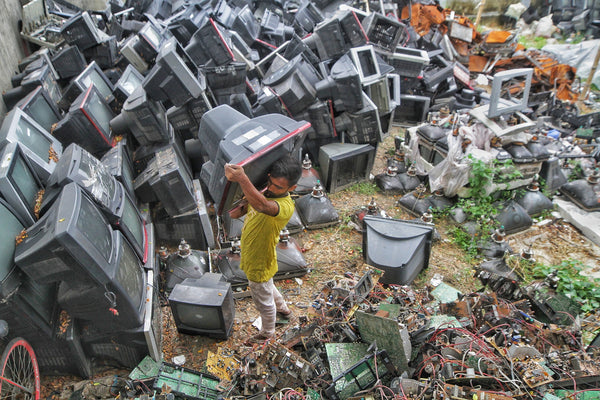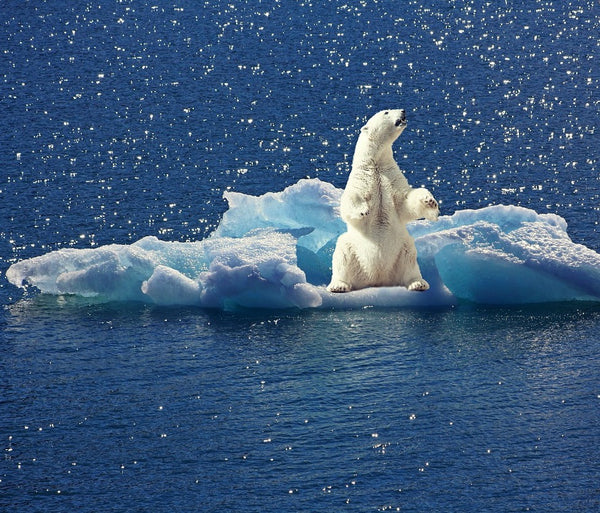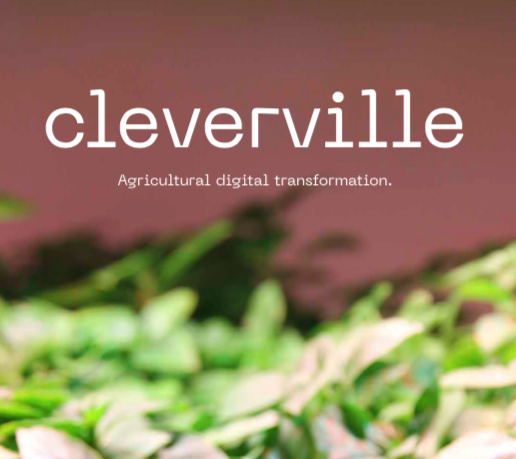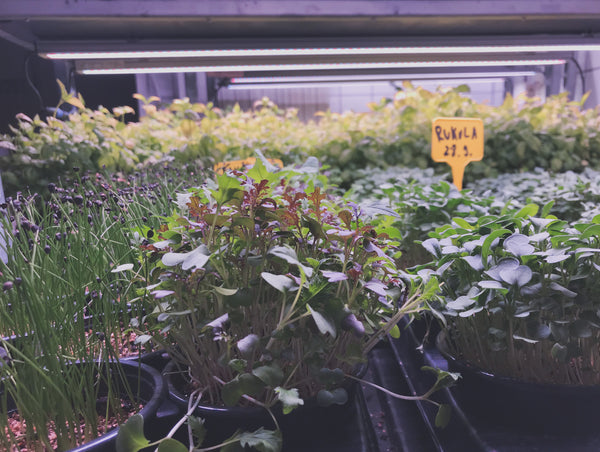Vesela Motika Blog
-
The Most Effective AI Techniques for Lowering CO2 Emissions in Food and Automotive
 This post investigates the substantial CO2 footprint of food and cars, examining both production and usage aspects, while exploring AI's potential to address associated environmental challenges. Analyzing data from food production, food waste, car production, and car usage, we reveal striking disparities and highlight opportunities for emission reduction. For instance, we find that food production emits nearly 40 times more CO2 than cars, with cars utilizing potentially recyclable materials for 3/4 of their production. Moreover, food waste accounts for almost 70% of the global CO2 emissions from cars. Through AI interventions like Natural Language Processing (NLP), Computer Vision, Forecasting, Personalization, and Fraud Detection, we propose strategies to curtail food waste, optimize resource use, foster sustainable consumption, and enhance automotive sector sustainability. These insights underscore AI's transformative potential in mitigating CO2 emissions and steering us towards a more resilient, sustainable future.
This post investigates the substantial CO2 footprint of food and cars, examining both production and usage aspects, while exploring AI's potential to address associated environmental challenges. Analyzing data from food production, food waste, car production, and car usage, we reveal striking disparities and highlight opportunities for emission reduction. For instance, we find that food production emits nearly 40 times more CO2 than cars, with cars utilizing potentially recyclable materials for 3/4 of their production. Moreover, food waste accounts for almost 70% of the global CO2 emissions from cars. Through AI interventions like Natural Language Processing (NLP), Computer Vision, Forecasting, Personalization, and Fraud Detection, we propose strategies to curtail food waste, optimize resource use, foster sustainable consumption, and enhance automotive sector sustainability. These insights underscore AI's transformative potential in mitigating CO2 emissions and steering us towards a more resilient, sustainable future. -
AI and Sustainability: Rethinking Resource Management for Environmental Impact - Insights from Vehicle Usage Analysis
 "At the nexus of artificial intelligence (AI) and sustainability lies a transformative paradigm shift, where mathematical reasoning catalyzes a profound re-evaluation of resource management and environmental conservation. This exploration transcends traditional carbon-centric metrics, emphasizing the critical importance of holistic considerations in sustainability discourse. By scrutinizing the interplay between AI and sustainability, particularly within the context of vehicle usage, novel insights emerge, revealing the inadequacies of conventional carbon footprint assessments. The data underscore a fundamental truth: mitigating carbon emissions necessitates a broader overhaul of resource utilization practices across product lifecycles. Ultimately, this small study serves as a clarion call for the convergence of AI technologies and sustainability principles, heralding a new era of innovation to address environmental challenges and promote a more equitable, prosperous, and sustainable future."
"At the nexus of artificial intelligence (AI) and sustainability lies a transformative paradigm shift, where mathematical reasoning catalyzes a profound re-evaluation of resource management and environmental conservation. This exploration transcends traditional carbon-centric metrics, emphasizing the critical importance of holistic considerations in sustainability discourse. By scrutinizing the interplay between AI and sustainability, particularly within the context of vehicle usage, novel insights emerge, revealing the inadequacies of conventional carbon footprint assessments. The data underscore a fundamental truth: mitigating carbon emissions necessitates a broader overhaul of resource utilization practices across product lifecycles. Ultimately, this small study serves as a clarion call for the convergence of AI technologies and sustainability principles, heralding a new era of innovation to address environmental challenges and promote a more equitable, prosperous, and sustainable future." -
Rethinking the Environmental Impact of Big Data Initiatives
 The 2014 United Nations report lauded the data revolution's potential for sustainable development but overlooked a critical risk: the environmental impact of Big Data initiatives. Despite ethical debates focusing on privacy and access, the materiality of data and its environmental implications have been largely ignored. This paper addresses this gap by examining the ethical dimensions of Big Data's environmental impact. It highlights the normative language in data governance, the tension with environmental policies, and concerns of unfair distribution. Through this exploration, the paper aims to elucidate the ethical responsibilities of individuals and institutions in mitigating the environmental consequences of the data revolution.
The 2014 United Nations report lauded the data revolution's potential for sustainable development but overlooked a critical risk: the environmental impact of Big Data initiatives. Despite ethical debates focusing on privacy and access, the materiality of data and its environmental implications have been largely ignored. This paper addresses this gap by examining the ethical dimensions of Big Data's environmental impact. It highlights the normative language in data governance, the tension with environmental policies, and concerns of unfair distribution. Through this exploration, the paper aims to elucidate the ethical responsibilities of individuals and institutions in mitigating the environmental consequences of the data revolution. -
Enhancing Scientific Discourse: The Potential of Sustainable Lean Science ?
 In the pursuit of redefining scientific publishing for accessibility, sustainability, and impact, Sustainable Lean Science emerges as a digital sustainability innovation. Drawing inspiration from the research paper "The Secondary Experience of an Information System Enabling Scientific Communication" (2015, by Sergej Lugović, Vesela Motika Ltd, Ivan Dunđer from the Faculty of Humanities and Social Sciences (FFZG) - Department of Information Science, and Marko Horvat from the University of Zagreb Faculty of Electrical Engineering and Computing), this approach aims to transform how scientific knowledge is disseminated and utilized.
In the pursuit of redefining scientific publishing for accessibility, sustainability, and impact, Sustainable Lean Science emerges as a digital sustainability innovation. Drawing inspiration from the research paper "The Secondary Experience of an Information System Enabling Scientific Communication" (2015, by Sergej Lugović, Vesela Motika Ltd, Ivan Dunđer from the Faculty of Humanities and Social Sciences (FFZG) - Department of Information Science, and Marko Horvat from the University of Zagreb Faculty of Electrical Engineering and Computing), this approach aims to transform how scientific knowledge is disseminated and utilized. -
Definicija digitalne eko transformacije

Kurt Lewin je dao vjerojatno najbolju definiciju ponašanja, tvrdeći da je ponašanje funkcija osobe koja djeluje unutar svog okruženja, odnosno dao nam je formulu B = f(P, E), gdje je B ponašanje, P osoba a E okruženje. Ernst Haeckel je definirao ekologiju kao odnos živih organizama u dva pravca: prema njihovom organskom i neorganskom okolišu. Istovremeno ekologija se smatra sestrom evolucije unutar prirodnih znanosti. Digitalizacija je definirana kao process konverzije informacija iz okruženja u digitalni format koji može procesuirati računalo. Ekonomija je definirana kao znanost upravljanja ograničenim resursima Ono što povezuje ekologiju i ekonomiju je grčka riječ oikos koja znači kuća, a planeta Zemlja je svima nama kuća.
-
Cleverville goes global

If you are running a food hub or short food supply chain and your revenue is above 1M of euro, Cleverville platform is the ideal for you. Bellow is the short description of its functionalities. We developed it for largest short food supply chain organisation in Croatia and now we are ready to take it globably.
Cleverville is a software platform for short food supply chains and local food aggregators (coops, food hubs, farmers markets). It consists of four main modules that are seamlessly integrated.
-
Mijenjamo urod za recepte
 Poštovani, dosta imamo upita kako se sve može pripremati naš urod te smo se odlučili na ovu kampanju. Naime spremni smo vam ponuditi da bez naknad...
Poštovani, dosta imamo upita kako se sve može pripremati naš urod te smo se odlučili na ovu kampanju. Naime spremni smo vam ponuditi da bez naknad...







